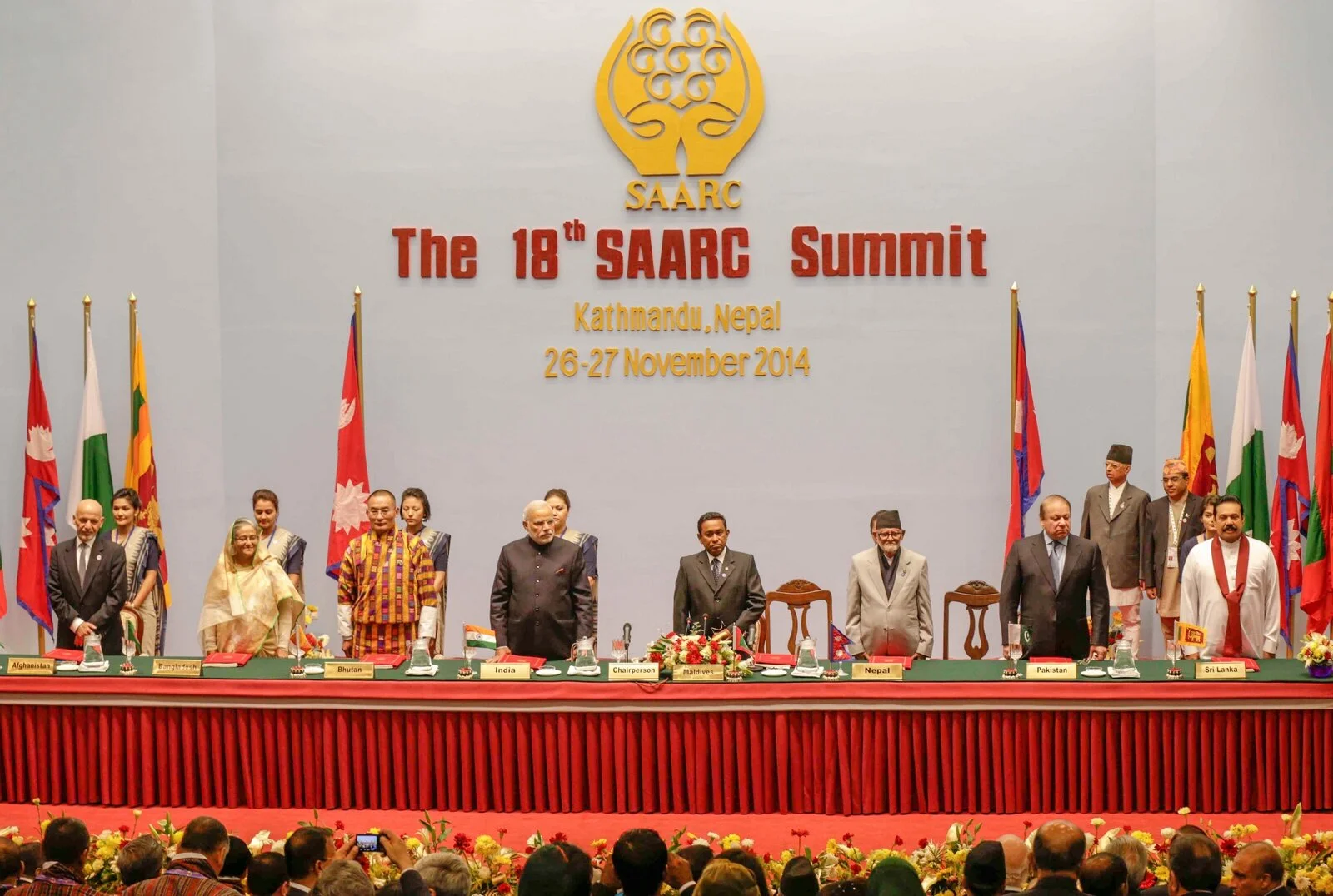Written by Akash Sahu
The aggressive stance of Islamists in Indonesia towards the CAA, and India’s mishandling of the February riots in New Delhi has damaged ties between India and Indonesia. With both democracies facing a major health crisis, they must work together to defeat COVID-19.
Read MoreWritten by Minaam Shah
If India wants SAARC to succeed, it has to give its neighbors a reason strong enough to cooperate. Any sense of collective South Asian identity has to originate under the pressure of an external force.
Read MoreGideon Rachman became chief foreign affairs columnist for the Financial Times.
Read MoreWritten by Sabyasachi Biswal
In South Asia, China is making in-roads as a global health leader, with an extensive public campaign, the “Health Silk Road”. India meanwhile vies for regional influence with Beijing, mobilising its medical sector and institutions such as SAARC.
Read MoreWritten by Dharish David and Chew Si Xing Theresa
How have democracies responded to COVID-19? Some societies rapidly implemented stringent measures whilst others did not, and how do democratic nations compare with their autocratic counterparts response’s to the pandemic?
Read MoreWritten by Drake Long
It’s tempting to assume China’s recent provocative activity near Vietnam, Malaysia, and the Philippines is a sign of a new, aggressive approach, asserting China’s claims when other claimants are distracted by COVID-19. But it’s really a sign of continuity, not change.
Read MoreWritten by Filippo Boni
Having made CPEC the “flagship project” of the BRI, China is keen to project the economic corridor as a success. When China has undertaken a global propaganda push, Beijing has realised that the BRI’s reputation relies on the ability to move things forward in Pakistan.
Read MoreWritten by Donald Kirk
Forced to rely on China for survival, North Korea’s leader makes a show of defying Beijing. The missile and nuclear program provide a “defence” against the US, but are also leverage against the CCP.
Read MoreWritten by Yoichiro Sato and Sek Sophal
The outbreak of COVID-19 has slowed down the world economy, and forced two U.S. Navy carriers into port, but it has not visibly slowed down the activities of China's patrol boats in the South China Sea.
Read MoreWritten by Seb Rumsby
Vietnam has been praised for its efficient containment of COVID-19 on limited resources, but even if the lockdown is lifted soon, domestic and international tourism will not recover for another two years amid an expected economic depression.
Read MoreWritten by Ian Inkster
Following Taiwan’s presidential election, there is now a growing danger of domestic reforms becoming buried due to low economic growth, owing to the coronavirus pandemic, and greater rhetorical focus on China and Taiwanese independence.
Read MoreWritten by Tridivesh Singh Maini
The Trump administration may have failed to rise to the occasion, but China with its lack of transparency over COVID-19 and it’s role in discrediting the WHO, is in position to don the mantle of global leadership.
Read MoreWritten by Riaz A. Khokhar
America’s absence from the stage has long-term geopolitical consequences. Its decreasing engagement in South Asia augurs badly for its long term influence. China’s relationship with South Asia, in particular Pakistan, is getting stronger with every passing day.
Read MoreWritten by Amrita Jash
Alfred Thayer Mahan’s prophetic words stating: “Whoever controls the Indian Ocean dominates Asia”- have become the key aspiration of great powers in 21st Century.
Read MoreWritten by Minaam Shah
Chinese ambitions in South Asia are growing and Beijing’s diplomatic approach is not only outplaying New Delhi, but changing the region forever. India should act fast.
Read MoreWritten by M. Sudhir Selvaraj and Sharik Laliwala
The anti-Muslim bias of the law is quite consistent with the ruling BJP’s ideological moorings directly inspired by its parent organisation, the Rashtriya Swayamsevak Sangh (RSS).
Read More















